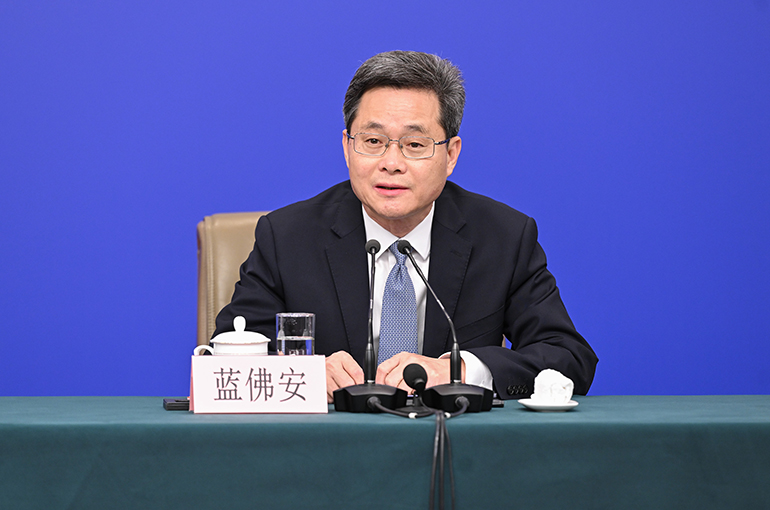 China Needs to Deepen Proactive Fiscal Policy to Offset External Risks, Finance Minister Says
China Needs to Deepen Proactive Fiscal Policy to Offset External Risks, Finance Minister Says(Yicai) May 6 -- China needs to deepen its more proactive fiscal policy to effectively counter the negative impact of external risks on its economy, the country’s finance minister has said.
The so-called reciprocal tariffs imposed by the United States on all of its trading partners is causing turmoil in global markets, and their impact on China’s economic development is deepening, Lan Foan said in an article published yesterday in Qiushi, an official magazine.
Nonetheless, the Chinese government has considerable borrowing capacity, ample reserve tools, and enough policy space to address these challenges, Lan noted.
After announcing last September the biggest stimulus package since the Covid-19 pandemic, China’s top policymakers vowed in December to embrace a “more proactive” fiscal policy and a “moderately loose” monetary policy this year to bolster the economy.
Lan also said the finance ministry will introduce a series of policies to boost consumption, expand effective investment, and hasten the development of new quality productive forces as well as strengthen support for troubled businesses, step up efforts to safeguard and improve livelihoods, support the integrated development of urban and rural regions, and prevent and mitigate risks in key areas.
Boosting consumption and improving livelihoods will be a main focus this year, Lan noted. Measures to lift consumption and the willingness to spend will include raising pension levels, increasing financial healthcare subsidies, distributing childcare allowances, and expanding student financial aid.
The nation’s investment potential and capacity remain vast, Lan pointed out. This year, an additional CNY4.4 trillion (USD609 billion) in local government special bonds will be issued, an increase of CNY500 billion (USD69.2 billion) compared with last year.
Regarding policies to beef up support for businesses in distress, Lan said it is essential to nurture the private economy, push forward the clearance of arrears owed by local governments to businesses, and bolster support for companies facing external shocks and operational difficulties.
Lan also called for the prompt issuance of the first batch of CNY500 billion in special treasury bonds, which will go to support large state-owned commercial banks in replenishing their core tier-one capital to bolster their operational capabilities as well as reclaim idle land for affordable housing to help stabilize the real estate market.
China's government debt was CNY85 trillion (USD11.7 trillion) at the end of 2023, with a government debt ratio of 67.5 percent, significantly lower than the average for G20 and G7 nations at 118.2 percent and 123.4 percent, respectively, according to data disclosed by Lan, indicating that China has considerable borrowing capacity.
Editor: Futura Costaglione